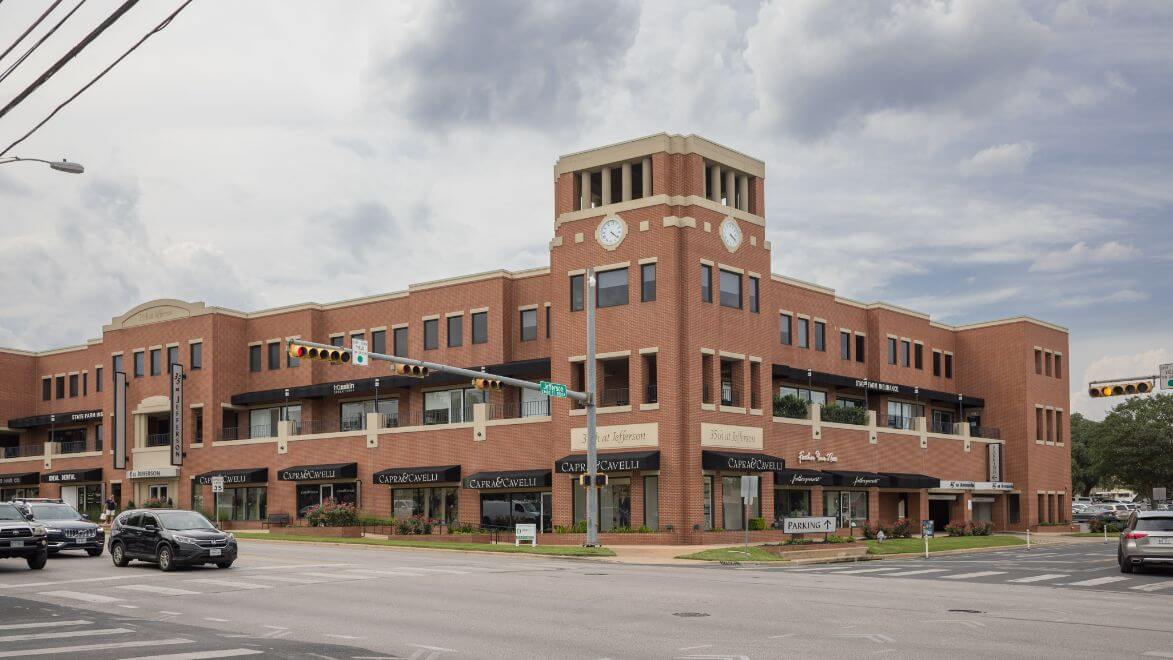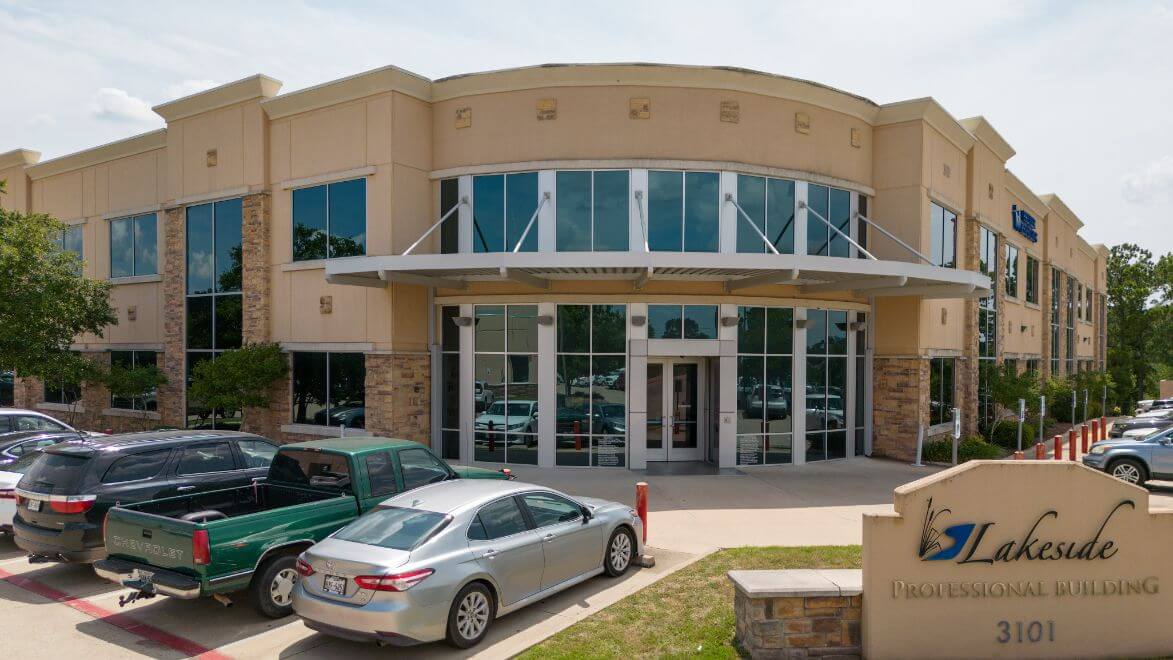Rosacea
Understanding and Treating Rosacea: Chronic Skin Condition
Rosacea is a chronic skin condition that affects millions of people, often appearing as persistent redness across the central part of the face. Though it’s common, many underestimate its impact on skin health and confidence. Flare-ups can occur sporadically, making it a challenging condition to manage without professional guidance.
At Tru-Skin Dermatology, our team takes a comprehensive approach to care, helping patients understand what triggers their rosacea and what rosacea treatment options can help restore calm, balanced skin.
Examples of Rosacea
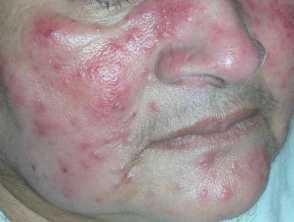
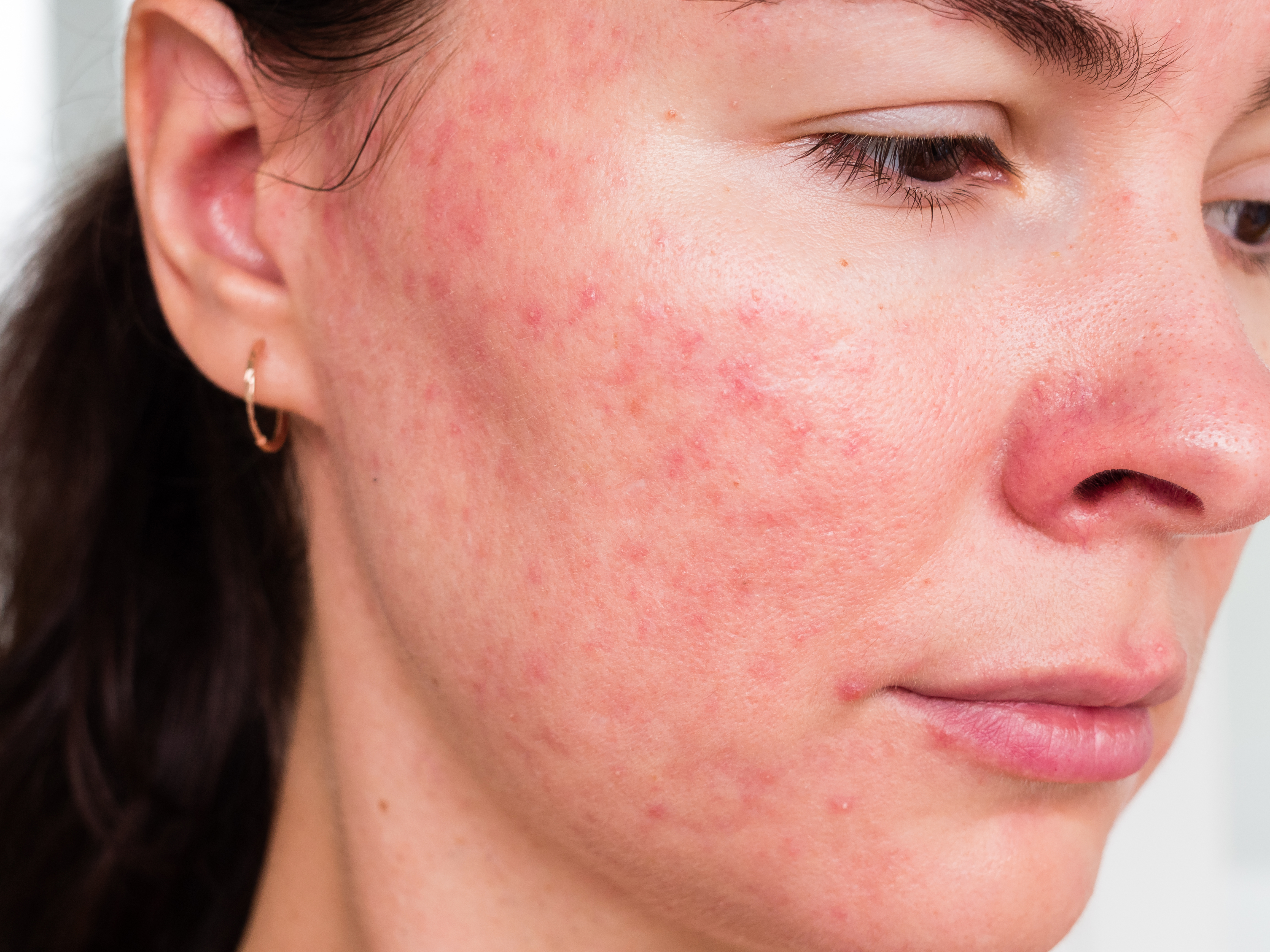
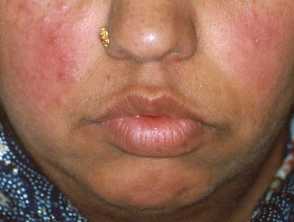
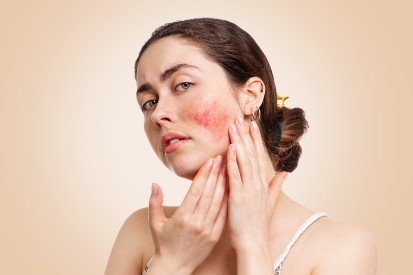
What Causes Rosacea?
While the exact causes aren’t fully understood, knowing the triggers is an essential step. A combination of genetic, vascular, and environmental factors may contribute to its development. These underlying causes influence how the skin reacts to inflammation and external stressors, leading to the visible redness and sensitivity often associated with rosacea.
Common rosacea causes include:
- Genetic predisposition: A family history of rosacea or related skin conditions increases susceptibility
- Immune system response: An overactive immune reaction may contribute to inflammation and visible skin changes.
- Vascular irregularities: Abnormalities in facial blood vessels can lead to persistent redness and flushing.
- Microorganisms on the skin: Certain bacteria or mites (like Demodex folliculorum) are thought to play a role in rosacea development.
- Environmental and lifestyle influences: Long-term sun exposure, temperature extremes, and certain skincare habits can worsen underlying causes over time.
Rosacea Treatments
While there is no permanent cure for rosacea, effective management is possible with the right care and consistency. At Tru-Skin Dermatology, our dermatologists develop personalized rosacea treatment plans tailored to each patient’s skin type, symptoms, and lifestyle. The goal is to calm inflammation, minimize redness, and prevent flare-ups so patients can maintain clearer skin, and reduce discomfort.
Common rosacea treatment options include:
- Topical medications to reduce redness, inflammation, and visible blood vessels
- Oral antibiotics for moderate to severe cases to control bumps and irritation
- Laser and light therapies that target visible blood vessels and persistent redness
- Prescription skincare products designed to strengthen and soothe sensitive skin
- Lifestyle and skincare recommendations to help minimize flare-ups and protect the skin barrier
- Ocular rosacea treatments, such as medicated eye drops or warm compress routines for eye-related symptoms
Rosacea Symptoms
Rosacea symptoms often appear gradually and can vary in severity from one person to another. The condition primarily affects the face, typically the cheeks, nose, chin, and forehead, and is characterized by persistent facial redness that may come and go. Recognizing the early signs can help you seek professional care before symptoms progress or become more difficult to manage.
Common rosacea symptoms include:
- Persistent facial redness or flushing that doesn’t fade easily
- Visible blood vessels on the cheeks or nose
- Bumps or rosacea acne breakouts on affected areas
- Burning, stinging, or skin sensitivity
- Thickened skin, especially around the nose (in advanced cases)
- Dry, irritated, or watery eyes (ocular rosacea)
- A warm or tingling sensation across the central face
Types of Rosacea
Rosacea can appear in several distinct forms, each with its own set of visible signs and underlying characteristics. Understanding the different types of rosacea helps dermatologists identify the most effective treatment approach and guide patients toward lasting relief.
Erythematotelangiectatic Rosacea (ETR)
This type of rosacea is marked by persistent redness, flushing, and visible blood vessels across the central part of the face. Erythematotelangiectatic rosacea often causes sensitive skin that may sting or burn, especially after exposure to heat or sun.
Papulopustular Rosacea
Also known as inflammatory rosacea, papulopustular rosacea presents with red bumps and pus-filled pimples that resemble acne. It typically affects the cheeks, chin, and forehead, and may occur alongside persistent redness or swelling.
Phymatous Rosacea
Phymatous rosacea leads to thickened, rough skin and enlarged pores—most often on the nose (a condition known as rhinophyma). This form is less common, but when it occurs it can become more noticeable over time without proper management.
Ocular Rosacea
Ocular rosacea affects the eyes and eyelids, causing redness, dryness, irritation, or a gritty sensation. In more advanced cases, it can lead to inflammation of the eyelids or sensitivity to light.
From Our QualDerm Family of Providers: Sunscreen Tips
Rosacea Diagnosis and When to See a Dermatologist
Diagnosing rosacea typically involves a thorough skin evaluation and discussion of your medical history. Dermatologists assess visible redness, patterns of inflammation, and any eye involvement to determine the specific type and severity of the condition. Because rosacea can resemble other skin concerns like acne or dermatitis, a professional diagnosis ensures you receive the most accurate and effective care plan.
You should see a dermatologist if you experience persistent facial redness, visible blood vessels, or discomfort that doesn’t improve with over-the-counter skincare. Early diagnosis helps prevent worsening symptoms and allows for personalized treatment options to manage rosacea more effectively.
Rosacea FAQs
Identifying and avoiding triggers such as spicy foods, alcohol, and extreme temperatures can help reduce flare-ups. Maintaining a gentle skincare routine with mild, fragrance-free cleansers and moisturiser is also essential. Regular visits to a dermatologist can help fine-tune your rosacea management plan.
You can absolutely wear makeup with rosacea, as long as you choose products formulated for sensitive skin. Mineral-based or hypoallergenic makeup is often a safe choice. Look for non-comedogenic, fragrance-free options, and remove makeup gently to avoid irritation.
Yes—daily sun protection is one of the most critical steps for rosacea-prone skin. Choose a broad-spectrum sunscreen with an SPF of 30 or higher that uses physical blockers, such as zinc oxide or titanium dioxide. These formulas are less likely to irritate sensitive skin.
Rosacea is a chronic condition, which means there is no permanent cure. However, with consistent treatment and trigger management, symptoms can be effectively controlled. Partnering with a dermatologist helps prevent flare-ups and maintain long-term skin balance.
In many cases, rosacea can progress or become more noticeable without proper care. Seeking early evaluation from a dermatologist can help minimize symptoms and prevent long-term skin changes.
Yes—emotional stress and anxiety are common rosacea triggers that can lead to sudden flare-ups or increased redness. Stress management techniques, such as mindfulness, yoga, or regular exercise, may help reduce these effects.
From the Tru-Skin Dermatology Blog
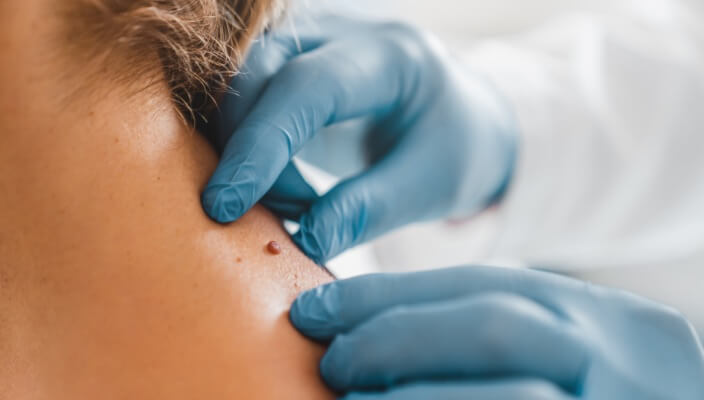
- Skin Cancer
- Skin Exams
- Sun Safety
Our team has access to the latest skin cancer treatment technology to quickly remove certain kinds of skin cancer. Read to learn more about the life-saving potential of early skin cancer detection.
Read More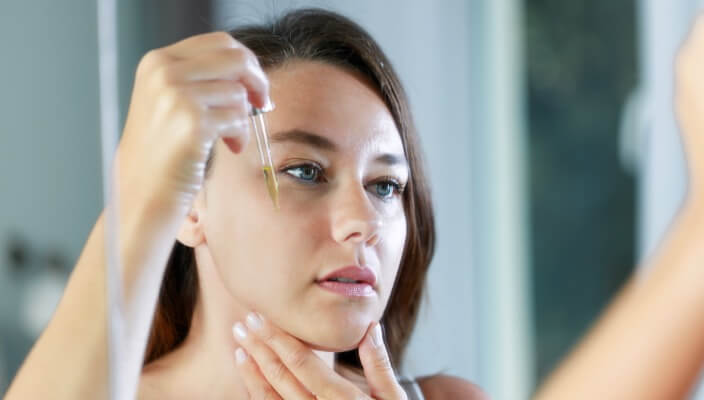
- General Dermatology
- Skin Care
In this blog post, we’ll take a closer look at the benefits of Vitamin C for skincare and explore how incorporating this ingredient into your routine can help you achieve your best skin yet.
Read More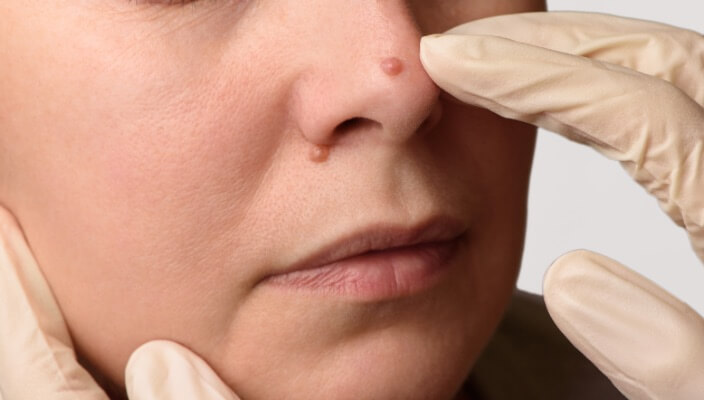
- General Dermatology
Are you dealing with the discomfort and embarrassment of warts, cold sores, or other skin growths? At Tru-Skin Dermatology, we understand the impact these skin conditions can have on your life. Our team of expert dermatologists provides personalized care and effective treatments to help you achieve healthy, beautiful skin.
Read MoreFeatured Products
Check your local office for current stock!
Check your local office for current stock!

